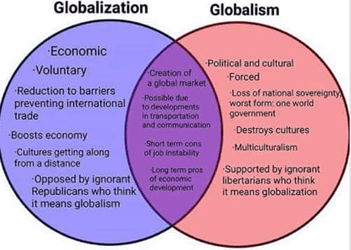Democrats, liberals, and Trumptrollers have been concentrating their destructive efforts on the President’s handling of the pandemic, confident (or pretending to be) that his alleged failures in this area are the key to defeating him in November. Their less noisy  line of attack is to paint the protectionist economic and trade policies that defined his election campaign four years ago as theoretical errors that inevitably failed when given practical application. Thus (they argue) Trump’s meetings with President Xi, and those of his trade negotiators with their Chinese opposites, have produced nothing, or next to nothing. Certainly, Peking’s pledge of a year or so ago to buy more products from the United States, agricultural commodities in particular, are unlikely to be kept; partly as a result of China’s deepening economic crisis, and also because increasing tensions between the two superpowers disincline Xi to bolster Trump and America in any way.
line of attack is to paint the protectionist economic and trade policies that defined his election campaign four years ago as theoretical errors that inevitably failed when given practical application. Thus (they argue) Trump’s meetings with President Xi, and those of his trade negotiators with their Chinese opposites, have produced nothing, or next to nothing. Certainly, Peking’s pledge of a year or so ago to buy more products from the United States, agricultural commodities in particular, are unlikely to be kept; partly as a result of China’s deepening economic crisis, and also because increasing tensions between the two superpowers disincline Xi to bolster Trump and America in any way.
The apparent standoff is encouraging an attitude of “I-told-you-so” among skeptics and the Administrations’ detractors. Earlier this week, Walter Russell Mead wrote in the Wall Street Journal that Trump’s instincts are often mutually self-defeating. “Take China policy,” he wrote. “Mr. Trump clearly believes that economic power is the key to national strength and that enhancing America’s economic vitality is necessary to maintain the country’s position in years to come. He also believes that under its current leadership China is a threat to American security and world peace. But Mr. Trump and his aides alike struggle to create a coherent policy around these ideas, in large part because the economic strategy and the China strategy, while they overlap in places, don’t mesh.”
Another commentator has suggested that in resisting China’s exploitive trade policies, the United States should not pass up the wealth it has managed to wring from them despite their basic unfairness. A common assumption seems to be that extricating America from the coils of the neoliberal empire is impossible except at economic cost to ourselves; therefore we are all better off leaving well enough alone by continuing to play along in the globalist system as it developed after the collapse of the Soviet empire three decades ago.
It is true that five months before the election of 2020 Donald Trump is sounding very much as he did while he was running for President four years ago. So far however from indicating that he has accomplished nothing during his presidency–his understanding of the United States and of the world having been false from the start, and his subsequent approaches to the problems facing them consequently the wrong ones–events of the past four months confirm the accuracy of his reading of them, and the correctness of his response. Most important is the problem of China, not only as a trading party but as a highly aggressive dictatorship whose ambition is to be the next superpower with the capability of ruling the world as absolutely as it does the home country. Trump is not the only American public figure to recognize the fact, of course; but he is almost the only one who acts as if he were. And he is certainly one of the very few Washington politicians willing to stand up to the American media and American liberals elsewhere who sympathize, however discreetly, with the ideological aims of the Pekinese regime, which represents for them what the Soviet Union did for their political predecessors on the Left.
The problem with “free trade” was that it was never free at all and that, in the case of the Chinese especially, it worked to the actual disadvantage of the United States. Donald Trump, of course, recognized the fact for decades–and said so. But for him it is only a single aspect of the much larger and wider problem of globalism whose destructive consequences extend far beyond economics, as the present pandemic demonstrates. Covid-19 is not simply a result of globalism: It is the globalist disease, whose lightning spread around the world would have been impossible without the global system that transmitted it so efficiently and that is warping the structure, society, and culture of every nation on earth. Globalism has dire consequences for international health, just as it does for international economic prosperity. And it has serious consequences, too, for political systems–the freedom and integrity of the nation-state especially–as Brussels’ incompetent and nationalistic response to the pandemic across the 27 member countries of the European Union has drastically demonstrated not only to the Federation itself, but to the entire European continent as well. Finally, it is responsible for the creation of international rule by non-government organizations, global agencies, and international law that have no basis in democratic assent and are accountable to no one but international bureaucrats appointed by national governments headed in almost every case by liberal internationalist “leaders.”
When Donald Trump speaks against “free trade,” he uses the phrase–as he always has done–as shorthand for these things, all of which he has opposed since being sent to the White House and some of which he criticized for years before then. He was right about them at the time–beginning with free trade and China–and he is right about them now.
The pandemic only confirms how very right.
Comments powered by CComment